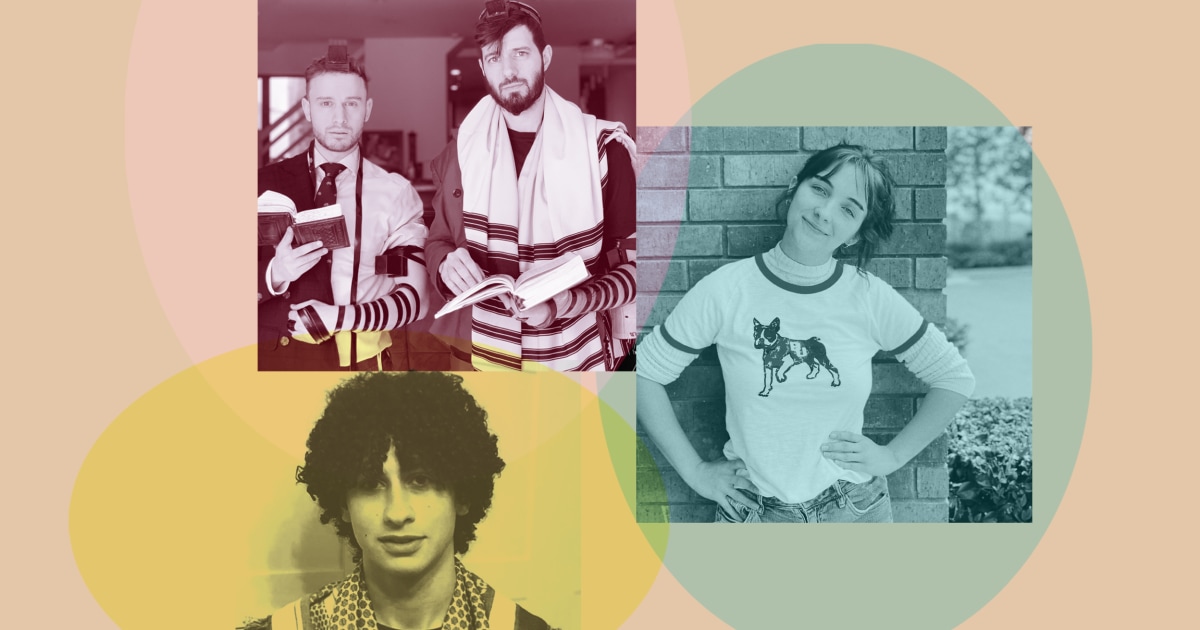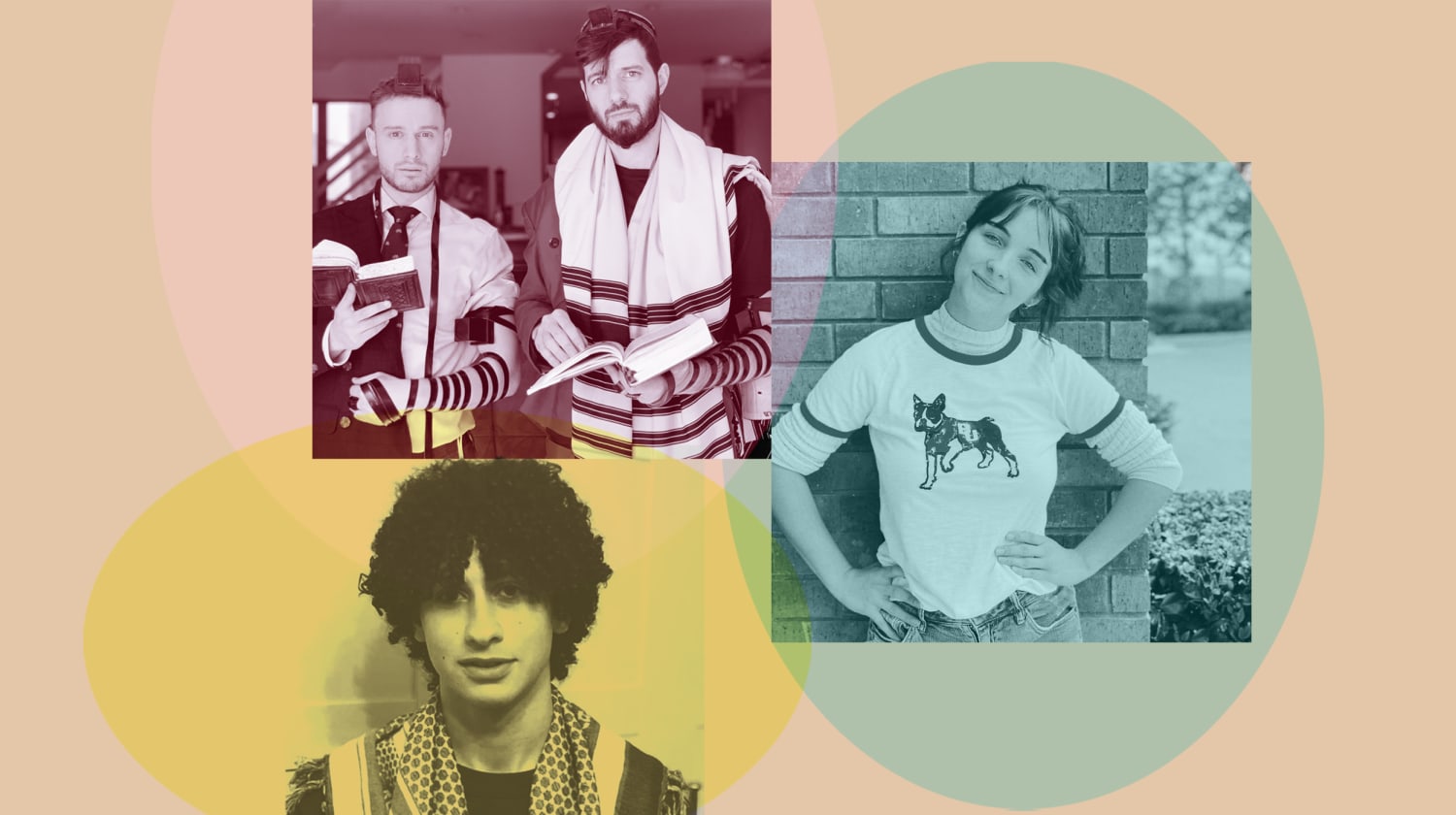
Since early May, every Friday evening, Julia Massey said she gets the same notification from TikTok: She’s been banned from posting for a week.
Massey, 19, of California, a Jewish creator on the app, said she could be posting a video of herself baking a loaf of challah or a clip of her cat, but the outcome is always the same.
“It just repeats and repeats until I’m basically entirely incapable of interacting whatsoever on the app,” she said. Massey consistently uploads videos to her account, but she said it’s been a fight to get those videos to stay up.
On TikTok, Jewish creators say speaking about their Judaism comes with a price. Comment sections on the content of Jewish TikTokers are often filled with antisemitic remarks, stereotypes and slurs. Some Jewish creators say they have to think about whether they want to disclose their Judaism on the app, knowing the harassment they’re likely to be subjected to.
But, recently, some Jewish creators said they feel the app is subjecting them to a type of censorship by regularly flagging and removing their content. Nearly a half-dozen Jewish creators told NBC News that their videos are being banned and removed for allegedly violating TikTok’s community guidelines for things like hateful behavior, hamstringing their ability to use the app. Most of those creators said when they appeal their bans or video removals, the app says the punishment was made in error.
The types of videos that creators said the app flagged for violating its community guidelines include TikToks debunking antisemitic comments, a video discussing a news story about antisemitic violence, a video of a bat mitzvah held for a cat and a repost of a video made by TikTok in honor of the United Kingdom’s Holocaust Memorial Day.
“More recently, people have been much more outspoken and comfortable expressing their antisemitism and have basically entirely dismantled my ability of reaching anyone on the internet,” Massey said.
Jewish creators said they’re frustrated with the moderation process that has them feeling targeted, though they aren’t exactly sure how or why it’s happening. Some, like Massey, said they believe they’re the subject of users on TikTok mass reporting their accounts. However, mass reporting does not lead to any automated action from TikTok. Others, like Josh Cohen, 19, of London, said they think they’re getting caught in a clumsy algorithm likely designed to protect Jewish creators.
TikTok’s moderation is done through a combination of technology and human moderators, which attempt to identify, review and remove hateful content that violates its community guidelines.
“You’ll see people will censor words to try and get around it because it seems to be a kind of automatic process, to the point I’ve seen people censor the word ‘Jew’ as ‘J-3-W,’” Cohen said.
TikTok strongly condemns antisemitism and said there is no place for antisemitism on or off the platform, a TikTok spokesperson said in a statement to NBC News. TikTok also works with groups like the Anti-Defamation League, a Jewish civil rights organization, and the World Jewish Congress, an international federation of Jewish communities and organizations.
“We care deeply about fostering a welcoming environment and remove content that promotes hateful behavior, including antisemitic content,” the spokesperson said.
Jewish creators said they sometimes run into problems when they reply to antisemitic comments on their pages. TikTok has a feature that allows users to create video responses to specific comments, and Jewish creators sometimes use this to call out the antisemitic remarks and threats on their pages.
TikTok’s policy allows users to post counterspeech, however, the Jewish creators who spoke to NBC News said when they post counterspeech videos responding to these comments, they are frequently removed for violating community guidelines. In some cases, the original offending comment remains up.
“Normally, the videos that I can almost always rely on getting taken down are when I reply to comments that I receive that will say terrible things such as, ‘Why is it Jews always look like rats?’” Massey said.
Tommer, 32, and Yossi, 26, who run the account @JewCrazy and asked to be identified only by their first names to protect their safety, said they’ve experienced nine bans from the app in a matter of two weeks spanning from the end of May to the beginning of June.
The brothers-in-law have tried to take precautions against triggering a ban on their account, where they post comedic videos “with a Jewish twist,” which includes staying away from posting political videos and restricting what words commenters are allowed to use on their page. TikTok does not have any policy banning discussion of the conflict between Palestinians and Israelis.
The first time they received a ban in mid-May, they were dumbfounded. Then it happened again.
“We got another ban, like, OK, what’s going on? And then another ban. We got four bans in a few days and we hadn’t done anything,” Yossi said.
They said they reached out to a TikTok community manager email, and eventually the ban was reversed and their account was restored. Within minutes of posting their next video, they were once again banned.
“We’re out here to make content that’s inclusive. … Don’t ban us for being Jewish,” Yossi said.
Michael, 28, who goes by @Oochdawg on the app and asked to be identified only by his first name to protect his safety, said, like Tommer and Yossi, he avoids mentioning the conflict between Israelis and Palestinians or discussing politics on his page.
Since the end of May, he said he was banned at least twice for allegedly violating community guidelines but was never told specifically what in his videos violated those guidelines.
“The comments that I get and the hate that I get and the bans that I get are simply because I’m Jewish,” Michael said. “There’s no other explanation.”
The Anti-Defamation League has reported that antisemitism is rising in the United States, and preliminary research found an uptick in online and in-person incidents of antisemitism in the United States following the most recent fighting between Israel and Hamas. An analysis of Twitter between May 7 and 14 showed more than 17,000 tweets that used variations of the phrase “Hitler was right,” the group’s Center on Extremism said.
Several Jewish TikTok creators told NBC News they, too, have received some version of the “Hitler was right,” comment on their page.
A TikTok Transparency Report published by the app in February acknowledged that “hate speech remains a challenge to proactively detect and we continue to make investments to improve.” The report said TikTok removed nearly 73 percent of “hateful behavior videos before they were reported to us” and nearly 84 percent were removed within 24 hours of being posted.
Cohen, who was featured in a TikTok U.K. video for Holocaust Memorial Day, said other Jewish creators feel comfortable coming to him when they experience a ban or a video removal on the app. He said because he has collaborated with the platform, they hope he’s able to get them help or, at the minimum, an explanation.
He said he gets a message from a Jewish creator experiencing a ban or a restriction on posting every two to three days.
Cohen himself has experienced quirks in the algorithm. When he tried to repost the video he appeared in for TikTok U.K.’s observation of Holocaust Memorial Day on his page, he said the app removed the video for violating community guidelines.
“While [the moderation] is not maliciously aimed at Jews, they’ve done it carelessly so that it ends up silencing us while letting people who are blatantly antisemitic roam free,” Cohen said.
Daniel Kelley, associate director of the Center for Technology and Society at the Anti-Defamation League, said some social media platforms have sometimes used broad moderation tools in attempts to protect marginalized groups that have backfired by taking down the content of those they’re intended to protect.
Although the Anti-Defamation League currently has no data about the degree to which antisemitism is breeding on TikTok, Kelley said TikTok is not a “bad-actor platform” and is not encouraging the behavior. But, he added, one person experiencing antisemitism on the platform is too many.
“All these platforms have massive resources that they could put toward better addressing these problems. If we can’t get to zero, we can definitely get to better than we’re doing right now,” Kelley said.
Michael said he wants TikTok to acknowledge the problem and work on finding a solution so Jewish creators can make their voices heard on the app.
“Jews don’t feel safe on TikTok,” he said. “We feel it’s very toxic to us just for the same basic, fun TikToks we’re posting like everybody else.”
Source: | This article originally belongs to Nbcnews.com










